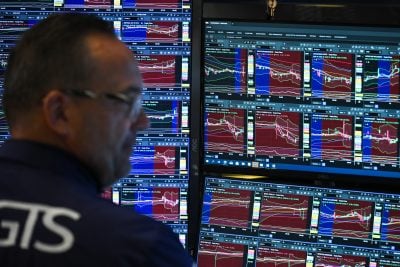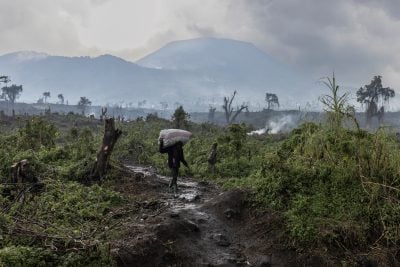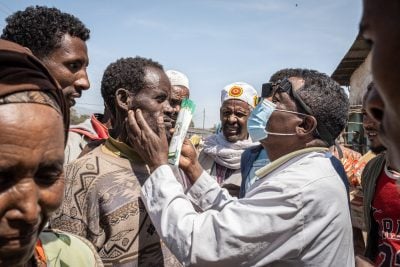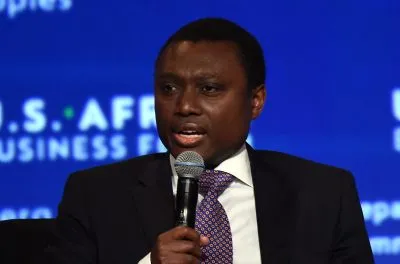It used to be a driving principle of the African National Congress (ANC) that it would never go to the International Monetary Fund (IMF) for loans. To Nelson Mandela, South Africa’s first democratic President, going cap in hand to the Fund was anathema.
His successors Thabo Mbeki and Jacob Zuma similarly resisted the temptation. But on 27 July, President Cyril Ramaphosa finally crossed that hallowed red line by accepting a $4.3bn loan under the Fund’s Rapid Financing Instrument (RFI).
“The emergency financing under RFI,” explained the IMF Executive Board, “will help fill the urgent Balance of Payments needs stemming from the outbreak of the Covid-19 pandemic and thus contain the economic disruption it has wreaked.”
Perhaps Ramaphosa is unlucky that the worst global pandemic since the Spanish Flu outbreak in 1918 has come during his presidency. Perhaps he is unlucky that South Africa has recorded the highest number of Covid-19 cases and deaths in sub-Saharan Africa.
But when South Africa’s Finance Minister Tito Mboweni and IMF officials cosily and resolutely justifying the loan, one has to wonder if this is a first step down the slippery slope of future financing facilities on more onerous terms.
South Africa, before the onset of the pandemic, had slipped into recession in Q1 2020. How Team Ramaphosa managed to convince its coalition partner, the South African Communist Party, and powerful trade union ally Cosatu – both opposed to the IMF – of the necessity of the loan remains a mystery.
Mboweni in his Supplementary Budget Speech to parliament in June, projected that gross national debt will top R4trn ($242.8bn) – 81.8% of GDP – by end FY2020/21. Gross tax revenue for the year is revised down from R1.43trn ($86.8bn) to R1.12trn ($68bn) due to the impact of the lockdown on the economy.
This is against projected spending of R1.95trn ($118.4bn), leaving a consolidated budget deficit of R761.7bn ($46.2bn), or 15.7% of GDP in 2020/21. Consolidated budget spending in 2021/22 including debt service costs, will exceed R2 trn ($121.4bn) for the first time.
According to the Organisation for Economic Cooperation and Development (OECD), South Africa’s fiscal and debt crisis has been deteriorating for the last three years.
“In the absence of consolidation,” it warns in its latest report on South Africa, released in August, “the debt level will exceed 100% of GDP in 2022, raising sustainability risks in a context of low growth and high government borrowing rates.
“The fiscal strategy has to cope immediately with the impact of Covid-19 and, in the medium-term, implement a bold consolidation to restore debt in a sustainable path while sparing potential growth.”
Institutionalised corruption?
Managing debt in the historical context of apartheid, with its inevitable impact on dealing with inequality, unemployment and a safety net for the poor, is an unenviable task and a highly political issue for any finance minister.
The response to the IMF loan is revealing. On the extreme left the overriding priority is to right the injustices of apartheid, seemingly at whatever cost.
In the centre, there is a recognition that the country cannot live beyond its means and that debt has to be managed through reforms, cuts in public spending, reining in excesses of state-owned enterprises (SoEs) and dealing with endemic corruption.
The spectacle of government insiders benefiting from Covid-19 related procurement and contracts is a sad indictment of Ramaphosa’s inability to deal with institutional corruption, which seems to have permeated almost every echelon of local, provincial and national government.
For the neo-liberal right, the ANC since 2007 cannot do anything right. It wants minimal state intervention with the private sector assuming a much greater role in managing the economy. Some on the right even sent a petition to the Fund warning it not to extend the loan because the money will be squandered, while others begged for in-built safeguards in terms of transparency and use of proceeds.
Mboweni laments that South Africa has “accumulated too much debt; this [Covid-19] downturn will add more. Out of every rand in 2020 that we pay in tax, 21 cents goes to paying interest on our past debts. Our Herculean task is to stabilise debt.”
He has dismissed critics of the loan of making “a mountain out of an anthill”. In June he got a $1bn Covid-19 Emergency Loan from the New Development Bank, the multilateral development bank established by the Brics states. Further loans from the World Bank and AfDB are also envisaged. Rather than the IMF being the holy grail of economic bailouts, there are doubts as to whether its oversight structures are fit for purpose.
“The authorities have committed to manage the IMF’s emergency financial assistance with full transparency and accountability,” retorted the IMF Executive Board. But is it naïve of the Fund to approve the loan largely on staff assessments of Mboweni’s aspirations to introduce reforms and manage the economy better?
The National Treasury is rightly commended as a bastion of budget transparency, but further down the funding chain oversight seems to dissipate. The IMF’s assertion that “the public procurement system has been revamped to address the weaknesses that facilitate state capture” is surprising given the spate of allegations of fraud and misuse of funds that surface routinely.
Regularly publishing and auditing all Covid-19-related expenditures, and publicly disseminating all procurement contracts and allocations (with details about awarded companies and their beneficial owners), will help. But it is their diligent and impartial execution that remains in question.
The OECD warns that “government exposure to SOEs is high and represents a significant risk to debt sustainability and public finances”. In his Budget Review in April, Mboweni confirmed that “in 2020/21, the borrowing requirement will be R432.7bn [$26.3bn]”.
Is sukuk the answer?
South Africa has a diversified debt financing approach including external borrowings and global and domestic bonds and sukuk. But despite being a major commodity producer, it has a low revenue base relative to its GDP that is reflected in its high debt service to revenue ratio. Sukuk seem to be a growing option, with the Treasury keen to build a yield curve for sovereign domestic issuances. Mboweni announced to parliament in Cape Town that “The Treasury is preparing to issue a debut rand-denominated sukuk in 2020/21.”
Dedicated Covid-19 mitigation sovereign sukuk has been a growing feature in Saudi Arabia, Turkey, Indonesia, Malaysia, Nigeria and Bahrain in FH 2020. The UK Treasury is similarly working on a second sukuk issuance.
“We look forward to issuing sukuk in the near future. The UK’s Islamic Finance sector is a fundamental part of our economy and its significance to UK financial services is always growing; therefore, it will certainly make up a key part of our economic recovery,” a Treasury spokesperson told African Banker.
Mboweni has spotted a main chance for increasing involvement of sukuk in public domestic debt management. But the National Treasury moves at a painstakingly slow pace.
The Director of Debt Issuance and Management at the Treasury, Siyabonga Shange, confirmed to African Banker that “the intention is to develop and help grow the rand sukuk market while potentially diversifying the investor type. We feel the market is big enough to warrant attention and potential development.”
Given the state of the economy, the sukuk size could be substantial, between R5bn-R10bn ($304m-$608m), according to local financial sources. The timing will be dictated by pricing, yields for local debt issuances and investor demand.
The government, according to Shange, might also return to the international market with a US dollar sukuk “if the pricing and market conditions are right”.
Eskom borrows to service debt
The importance of sovereign sukuk issuance is that it sets the benchmark for SoEs and corporates to tap the market. Eskom, the electricity utility, has been contemplating raising funds through a sukuk issuance since 2012. In June this year, the utility issued a tender inviting “credible” law firms to bid “to provide legal services for a rand Sukuk issuance”.
Eskom is frank about the utility’s debt situation. “Debt is approaching R450bn. We are unable to service debt from our EBITDA. The only option is that we must borrow to service the debt,” explained an Eskom official.
EBITDA refers to a company’s earnings before interest, taxes, depreciation, and amortisation, and is an indicator of a company’s current operating profitability.
The utility now regards sukuk as “a cost-effective funding instrument at acceptable risk. We assessed the viability of an innovative Local Currency Sukuk funding that would enable the company to further develop its Borrowing Plan. Domestic bonds/sukuk are issued under our registered Domestic Multi Term Note (DMTN) programme as guaranteed by the government of South Africa.”
Eskom’s imminent sukuk will follow Albaraka Bank South Africa, a subsidiary of the Bahrain-incorporated Albaraka Banking Group, which issued a R107m ($6.5m) sukuk earlier this year. To date Albaraka has raised R307m ($18.7m) through sukuk offerings to fund bank growth and expansion to a broader market.
“Uptake,” stressed Albaraka Bank’s Financial Director, Abdullah Ameed, “has been quite phenomenal. This, coupled with the fact that our initial issuance was fully subscribed, with additional prospective investors indicating their interest in the concept, our sukuk offering has clearly caught the attention of South African investors.”
Want to continue reading? Subscribe today.
You've read all your free articles for this month! Subscribe now to enjoy full access to our content.
Digital Monthly
£8.00 / month
Receive full unlimited access to our articles, opinions, podcasts and more.
Digital Yearly
£70.00 / year
Our best value offer - save £26 and gain access to all of our digital content for an entire year!
 Sign in with Google
Sign in with Google 



